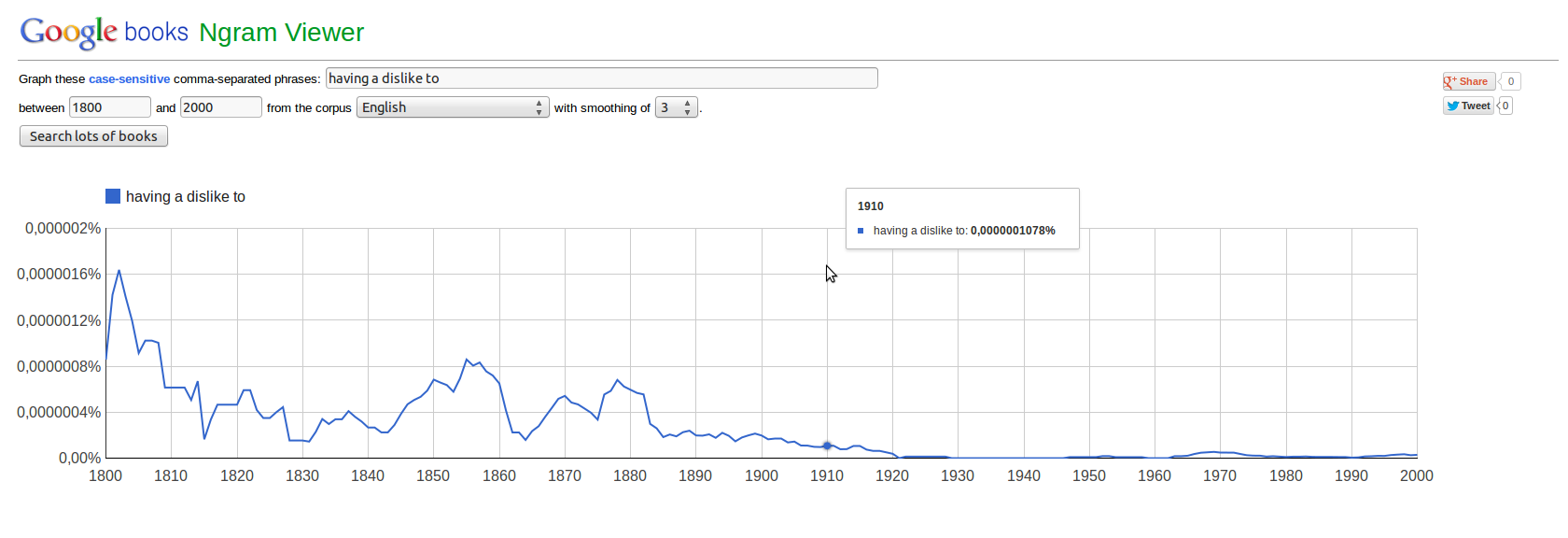I have been working with an extract from an 1861 newspaper (in Queensland, now part of Australia) concerning an act of mass insubordination by seamen.
The text reads
The whole of the men, I am told, belonged to the same "watch", and they adopted this manoeuvre in order to get three months imprisonment, and so free themselves from the ship, the men having a particular dislike to the mate appointed over them.
I am intrigued by the construction "having a ... dislike to...". In modern writing, I would expect "taking a dislike to" or "having a dislike for".
Was the forming having ..to once common, and when did it change?


